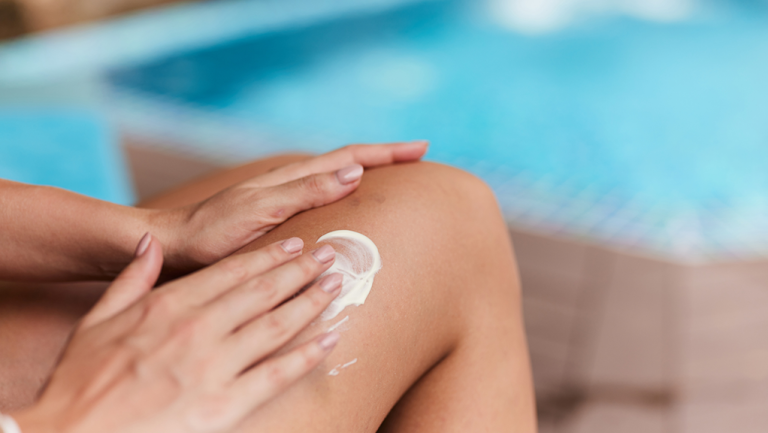July is Ultraviolet (UV) Safety Month – but how much do we really know about UV light and the effects it has on our bodies?
Exposure to UV Rays
UV rays are difficult to avoid – they reach us even when we’re walking down the street or driving in our cars. In the short term, this UV exposure can cause sunburn and/or darkening of the skin. However, over the long term, UV exposure causes premature aging of the skin and increases your risk of skin cancer.
To minimize your exposure to UV rays, consider the following when planning outdoor activities:
- Time of day – The sun is strongest between 10 a.m. to 2 p.m. Try to schedule your family’s outdoor activities before 10 a.m. and after 2 p.m. to avoid the most powerful UV rays.
- Weather – It’s a myth that cloudy weather blocks sunlight and UV rays. It’s just as important to use sun protection on cloudy days.
- Environment – We don’t always realize it, but the sun can reflect off of water, sand, snow and ice. Even if it’s cold outside, the sun can still reach your skin. Make sure to use sunscreen even in the winter months.
The Great Sunscreen Debate
What is the most effective SPF to wear in the sun? How soon do you need to reapply?
“Regular use of broad-spectrum sunscreen with SPF 30 or higher – combined with other sun protective measures – has been shown to prevent both melanoma and non-melanoma skin cancer,” says Dr. Christina Kurtzman, MD, a Dermatologist practicing at St. Elizabeth. “Regular sunscreen use also helps prevent sunburn, minimizes the number of new moles that develop and helps prevent aging of the skin.”
Dr. Kurtzman suggests looking for sunscreen products with zinc oxide or titanium dioxide for the best protection.
“I recommend lotions, creams or sticks rather than the spray formulation,” says Dr. Kurtzman. “It’s also important to make sure you’re covering your body with a thick enough layer. For the lotion, I recommend at least two tablespoons of sunscreen for an adult body.”
Dr. Kurtzman offers the following tips to help maximize UV safety:
- Avoid outdoor activities during the peak sun exposure hours of 10 a.m. to 2 p.m.
- Apply a broad-spectrum sunscreen with SPF 30 or above before you go outside – no matter what the season.
- Reapply sunscreen if you’re outside for more than two hours or if you’re in the water for more than 80 minutes.
- If you are using a higher SPF, you should still reapply every 2-3 hours when you are outside for a prolonged period of time.
- Seek shade for an extra layer of protection. Shade alone without sunscreen or a hat will not protect you against sunburn.
- Wear a hat with a 4-inch brim to help protect your scalp, face, ears and neck from the sun.
- Wear clothes with a tight-knit fabric or with Ultraviolet Protection Factor (UPF).
Most of all – be smart. A little bit of effort and preventive care will go a long way towards protecting you and your family from harmful UV rays.
St. Elizabeth Healthcare: Your Healthy Skin Partner
If you have questions about sunscreen or your skin this summer, we can help.
If despite your best efforts at sun protection, you end up with a burn, St. Elizabeth can help. Our 24/7/365 Nurse Now team can help you determine if you need medical care based on your symptoms and health history. Call now or schedule a Video Visit on Demand appointment to speak with a provider through telehealth.

